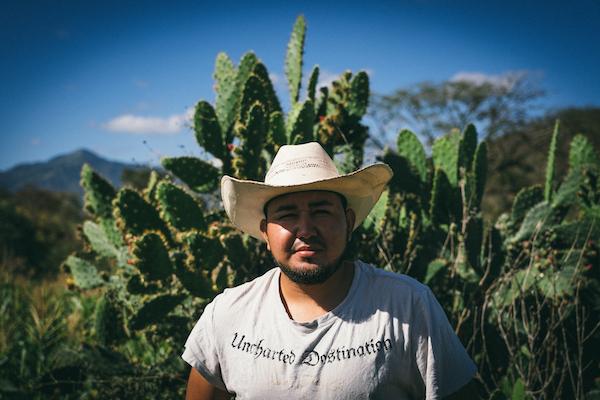Fernando Durón hasn’t left his home in the sparsely populated uplands of Olancho, Honduras—yet.
Like all farmers in this community, where agriculture and cattle ranching form the backbone of the economy, Fernando has faced many challenges related to climate change in recent years.
Unpredictable weather patterns, extreme drought, and torrential rain have affected millions across Central America’s “dry corridor,” which includes the countries of Honduras, Guatemala, Nicaragua, and El Salvador. Changing atmosphere-ocean circulation patterns near Central America, such as the El Niño Southern Oscillation, are increasing temperatures and this can cause intensified precipitation.
Without intervention, people in this region of the world will continue to experience the harmful environmental, health, and social effects of a changing climate. Many will be forced to migrate.
Fernando has seen several of his neighbors and community members leave in order to survive and stay safe. “Most houses here have people who have left as migrants to the US,” he said. “The main problems are unemployment and very low wages.”
Some days, loneliness must threaten to overwhelm the people who remain, scraping by to stay while enduring unpredictable shifts between flooded fields and bone-dry soil.
For these farming families, each day comes with its own series of risks and hard decisions. When crop yields are low, and even basic resources like seeds and fertilizers are inaccessible, some turn in desperation to banks and private lenders. This can lead to dangerous debt.
“If you can’t pay back because you have no harvest, they’ll take your land, your house, you become destitute, and you just can’t risk that. It’s one of the main reasons people are migrating,” explained Fernando.
For Fernando, however, the choice to stay in Honduras is not a choice to simply carry on as he always has and hope for the best; he recognizes that the changing climate needs to be met with changing agricultural practices. Supporting skilled farmers as they adjust farming practices is a key step in improving food security and helping build safe, affordable, and plentiful communities.
World Renew, a disaster relief, community development, and justice non-profit organization, has a long history of working with farmers like Fernando in communities hit hard by climate change. This peace and justice work is rooted in the belief that access to food is a fundamental human right. Therefore, the work of getting to the core of the causes behind food insecurity to bring about systemic, generational change is part of answering God’s call to pursue justice for every person.
World Renew has worked in Honduras since 1974. Currently, they are working through local partners to support Fernando and other farmers with seeds, irrigation pipes, and technical advice related to climate-adaptive farming practices, such as water conservation and soil protection. These farmers have shifted to planting beans to be sold locally as high-quality seeds, as well as cabbages and a variety of other crops.
So far, these steps have helped them to increase their yields, and served as encouraging signs, even in a still unpredictable, often fragile environment. Fernando does have hope that these new farming methods have given his community a chance to stay together.
“Since the big droughts, we have lost a lot of faith in farming, but this project, working together with irrigation, restores our faith in being able to make agriculture work here,” he said. “We've learned these new techniques. We’ve had this big help, and it’s stopping people from migrating.”
Despite the many challenges, people like Fernando are staying in Olancho and embracing new practices. These farmers are key sources of knowledge and understanding on climate change impacts, and they demonstrate the efficacy of responding together—not just for their own good, but for the common good shared through a better future.
Such perseverance has much to teach anyone committed to living justly and sustainably as a follower of Jesus, including the churches and advocates that World Renew is helping to equip for climate justice through our Climate Witness Project.
Responding to the dangers of climate change at any level can be slow, potentially discouraging work. Some days come with a flood of sudden setbacks or a drought of resources or support.
And yet, other days can bring encouraging blessings. The nourishment of fresh, innovative ideas. The powerful unity of shared prayer or public action. The gift of scriptural reminders such as Galatians 6:9-10 that call us to “not allow ourselves to get fatigued doing good. [For at] the right time we will harvest a good crop if we don’t give up or quit.”
Yes, faith and hope can be challenged as we respond to the climate crisis—but they can also, by the grace of God working alongside those who dare to take action, be restored.

